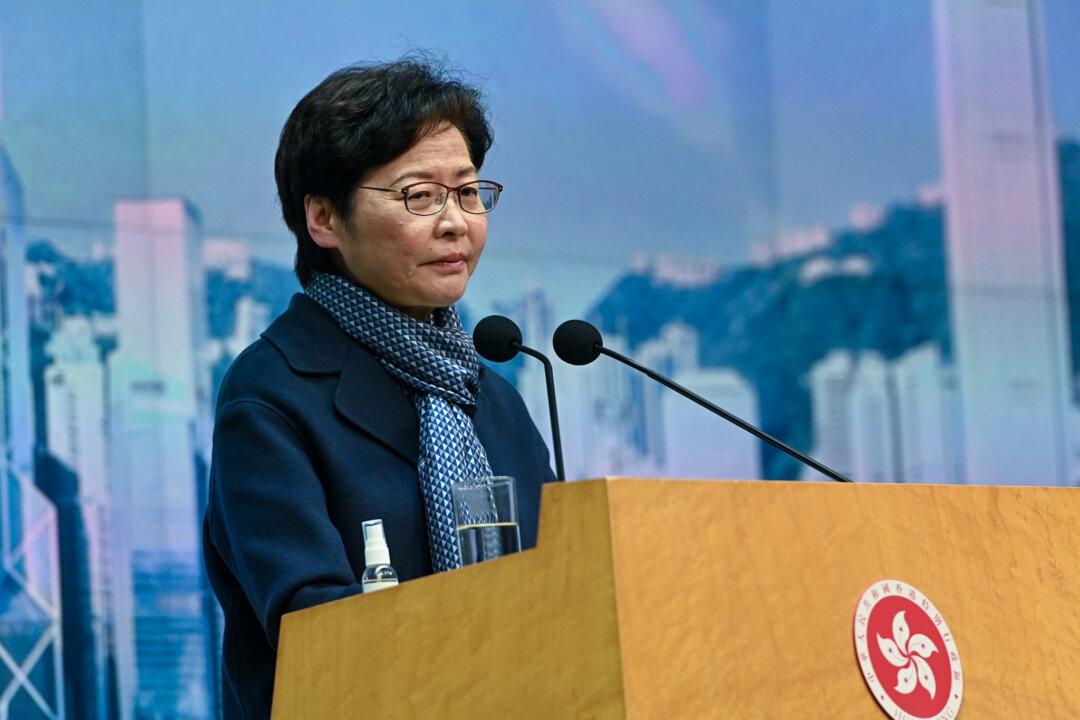Outgoing Hong Kong Chief Executive, Carrie Lam Cheng Yuet-Ngor, whose five-year term ended on June 30 this year, has the lowest approval rating of any governor or previous chief executive of the city, according to a recent poll.
The Hong Kong Public Opinion Research Institute (HKPORI) held a press conference on June 7 to announce the results of its survey, “Summary of the Interim Sentiments of One Country, Two Systems for the 25th Anniversary.”





